There are a couple of recent articles in the flood of coverage about Afghanistan which caught my eye last week. The first is factually wrong but I understand what the author was saying and he is, in a sense correct. The second is factually correct, I understand what that reporter was saying too and think he is, in a sense wrong. By analyzing both one can get a read on where we are in our battle to bring security to the population in the context of nation building.
The first article is Afghanistan’s Forgotten Province by Karlos Zurutuza which is about Nimroz Province. From the article:
‘You’re right, no troops based there,’ he says. And I’m realizing now that there’s not a PRT (Provincial Reconstruction Team) in the area, either.’ I ask him why none are stationed there, but he doesn’t have an answer. Neither do the experts.
Nimroz is a major smuggling hub in Afghanistan: heroin goes out and weapons get in across the Afghan-Iranian border,’ says best-selling writer and renowned Afghanistan commentator Ahmed Rashid. He says he has no explanation for the military abandonment’ of this remote, but potentially key, southern province.
Nimroz Province has two major municipal centers; the capitol of Zaranj which is on the border with Iran and Delaram which is astride Rte 1 bordering Helmand Province. There are no ISAF forces in Zaranj but there is the 2nd Marine Regimental Combat Team in Delaram. There are over 10,000 ISAF troops in the Province and if you google “Nimroz Province” you’ll see several articles about the Marines fighting there. So the article is wrong but the point the author is trying to make which is Nimroz has not received anything like the redevelopment love being dumped into other key provinces is correct. Was correct is more accurate because Nimroz is about to feel the love.
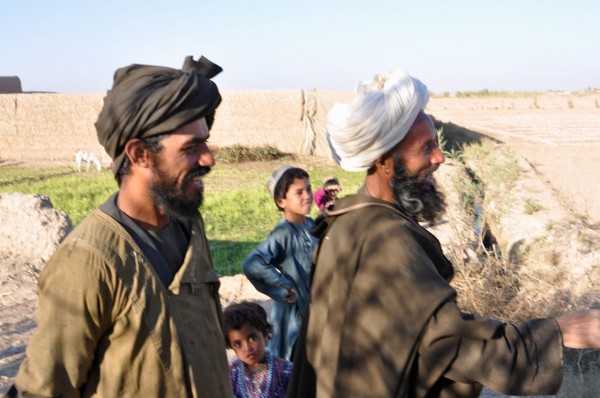
This War was published by self described “person of liberal temperament” James Traub who takes the reader on a lengthly yet concise review of American force projection overseas to explain why he thinks Afghanistan “…feels like, increasingly, is Vietnam, especially to people who formed their views of American military power, and indeed of America itself, in opposition to the Vietnam War.” He is unable to make his case because we just do not know what the end game will look like. Along the way he reports from the front of the Khandahar battle a few things I find very interesting.
By the time I arrived, Arghandab had become safe enough for the district governor, Hajji Abdul Jabbar, to report to work every day at the district center inside the base. Abdul Jabbar was just about the whole of government in the district, since the few officials sent from ministries in Kabul tended either not to show up or not to work when they did. Every morning, Abdul Jabbar held an audience for petitioners, listening to their grievances and stamping their tattered papers. Once a week, he met with the district shura, a group of village elders and farmers. The meeting I attended featured a lot of shouting and accusation, much of it by Abdul Jabbar. It seemed pretty formless, but Kevin Melton, a very tall and very young official from USAID, leaned over to me and said, They’re talking about security. Normally it’s ISAF doing the talking. They’re pointing fingers at each other; that’s progress.
I felt like I was watching a political-science experiment: forging a social contract in a state of nature. Melton believed that what mattered was not so much building roads or schools as overcoming the legacy of distrust, the habit of seeking violent solutions to all problems. He saw his job as helping give local citizens a voice in decisions, so that ultimately they could take responsibility for themselves rather than simply accepting assistance. And he felt that his efforts were working. Thanks to small-team units living out in the district and to constant patrolling among the villages a crucial element of COIN strategy the Taliban presence had dropped significantly. If things continue as they have for the last four months, Melton quoted Hajji Mohammad, the shura leader, as saying, this next year could reverse the last seven.
The presence of a USAID Field Service Officer (FSO) is due to the civilian component of the surge and they are showing up in just every key district in the South. The second bit of information in the quote is that the American army has dispersed it’s maneuver battalions in the same manner the Marines have done in the Helmand. They are off the FOB’s and in the ville with the people which means Gen Petraeus may in fact be the most effective General Officer of his generation. The General sits on top of a massive military bureaucracy fighting a nasty insurgency with a coalition combat force and a dysfunctional host government. Despite this he has been able to turn his intent of getting off the FOB’s into action which is something his predecessors were unable or unwilling to do.
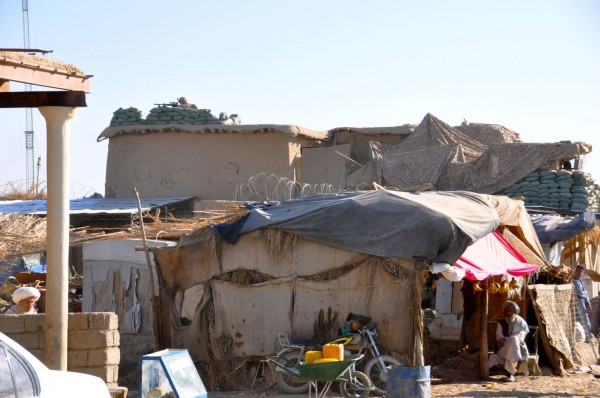
As I said above Nimroz Province is about to feel the love as the Marines and their USG surge counterparts start to focus on a Province which has been quiet yet remains important due to the border crossing with Iran. The Province has a new Governor, Abdul Karim Barahawi who is an elder in the Barahawi Baloch tribe and a respected, reportedly effective, commander who fought both the Soviets and the Taliban. He is a serious, competent man who wants to do right by the people of his province. Nimroz is a place which has plenty of Taliban but pretty good security. The roads are not safe at night for expats or Afghans who work for the government but commerce seems to flow without too much shrinkage. The Taliban in Nimroz seem to be mostly locals and focused on protecting and running the logistical pipeline from Iran into the Helmand Province.
The Americans face a tough choice in Nimroz. It is calm enough and the threat diffuse enough that there is no geographic or human terrain at which one can aim a kinetic operation. There is little to clear but it is not safe enough to hold. The Marines understand the best way to accomplish the “Hold” part of the mission is not with combat troops. They want to weaponize money and use that to conduct the build but due to self imposed force protection measures they cannot get out and about in Nimroz or any other quiet, permissive area of the country.
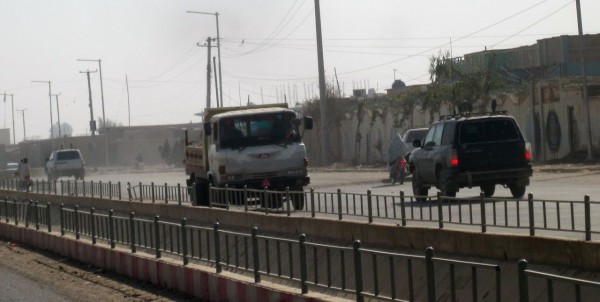
We are spending billions of dollars to accomplish a mission we can’t do because of artificial constraints that do not reflect reality on the ground. Yet lightly armed experienced international stability operators can work all anywhere in the province when they work with local shura’s, village elders and district government officials. I know this from personal experience.
Let me provide a hypothetical example to illustrate the point of how artificially high the overhead is for your typical US Government (USG) employee trying to do reconstruction. In this example the USG employee concerned with good governance and assigned to a PRT to mentor provincial authorities.
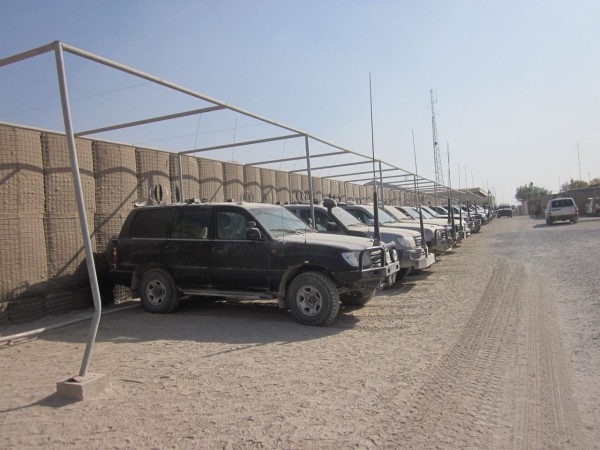
To make this a best case scenario allow me to further stipulate that USG employees are allowed to move off post for official meetings with just two vehicles and four armed protection specialists and that he is able to get off base once a week or about 40 times in a 12 month deployment. Here’s the stubby pencil math:
Cost of vehicles (including import fee’s and ECM equipment) 450k each
Cost of security operatives (including R&R rotations, mobilization training, insurance, admin fees etc…) 550k each
Cost of housing both operatives and USG official on a FOB 1 million each
Total cost divided by 40 trips = $203,750.00 per trip most of which are less than 3 miles total. I cost less than half that per year and don’t need or want the security specialists.
I have often argued contractors are the only efficient tool we have but let’s face it – that doesn’t look like it is going to happen. Creating yet another USG agency with a mandate to operate closer to the contractor model won’t work. Once a US Government Agency comes is created it is impossible to un-create and will grow exponentially regardless of performance.
This is where having unlimited amounts of other peoples money (OPM) really hurts. I know most of the USAID FSO’s in the Helmand and I deal with the American military on a daily basis. The FSO’s at the district level are smart, competent and just as dedicated to the mission as the Marines they are living with. They are also frustrated because they know all to well the cost of being hamstrung by force protection mandates. The Marines are looking for a few good men to operate the way we are currently operating in Nimroz Province and they too are frustrated. I have been advocating for years that armed contractors (not security contractors but project implementors) are the perfect solution. But let’s be honest that is not going to happen.
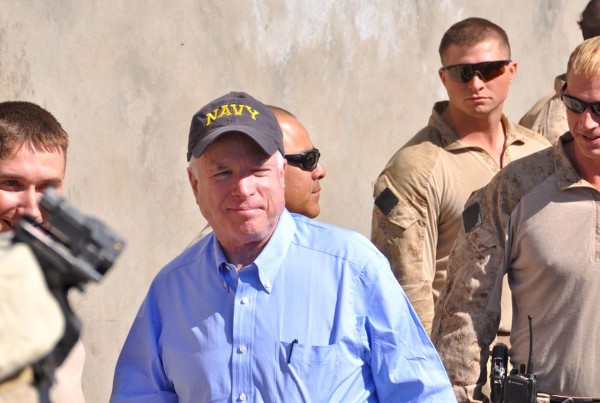
Being efficient, accomplishing the mission in a cost effective manner with minimal loss of life; all the things I was taught were important as a junior officer in the Marines turns out to be completely irrelevant to the ever expanding big government agencies. Americans have a long history of successfully fighting small wars far from home as do many of our allies. These small wars were fought on shoe string budgets by small units of Marines and sailors (and at times the American army too) who had arrived on ships are weren’t going home until the conflict was over. It is now inconceivable that the United States would send combat units into a theater of action for years on end. That is the only way a western military will ever be able to operate effectively while limiting their casualties and civilian casualties from collateral damage. I bet you could raise a battalion or two of volunteers to try a deployment like this but it is hard to imagine the USA pulling it off.
So what to do about Afghanistan’s forgotten province? I ask one of my brother Marines what he would do were he given this problem to solve under the historical constraints normally faced by Marine commanders fighting a small war. He replied immediately ; Q-cars, fire force and pseudo operators. Which is exactly what I would say as would all of my friends who are in the business. But there is no way the American military could even contemplate let alone run such decentralized high risk operations.
There are legitimate reasons to give Nimroz Province some attention but we don’t have to spend billions to do it. We are going to put our money on the line to prove that. Soon Ghost Team will be heading into Nimroz Province with the intent of getting the irrigation canals up and the capitol city refurbished. Nimroz will soon no longer be the forgotten Province.
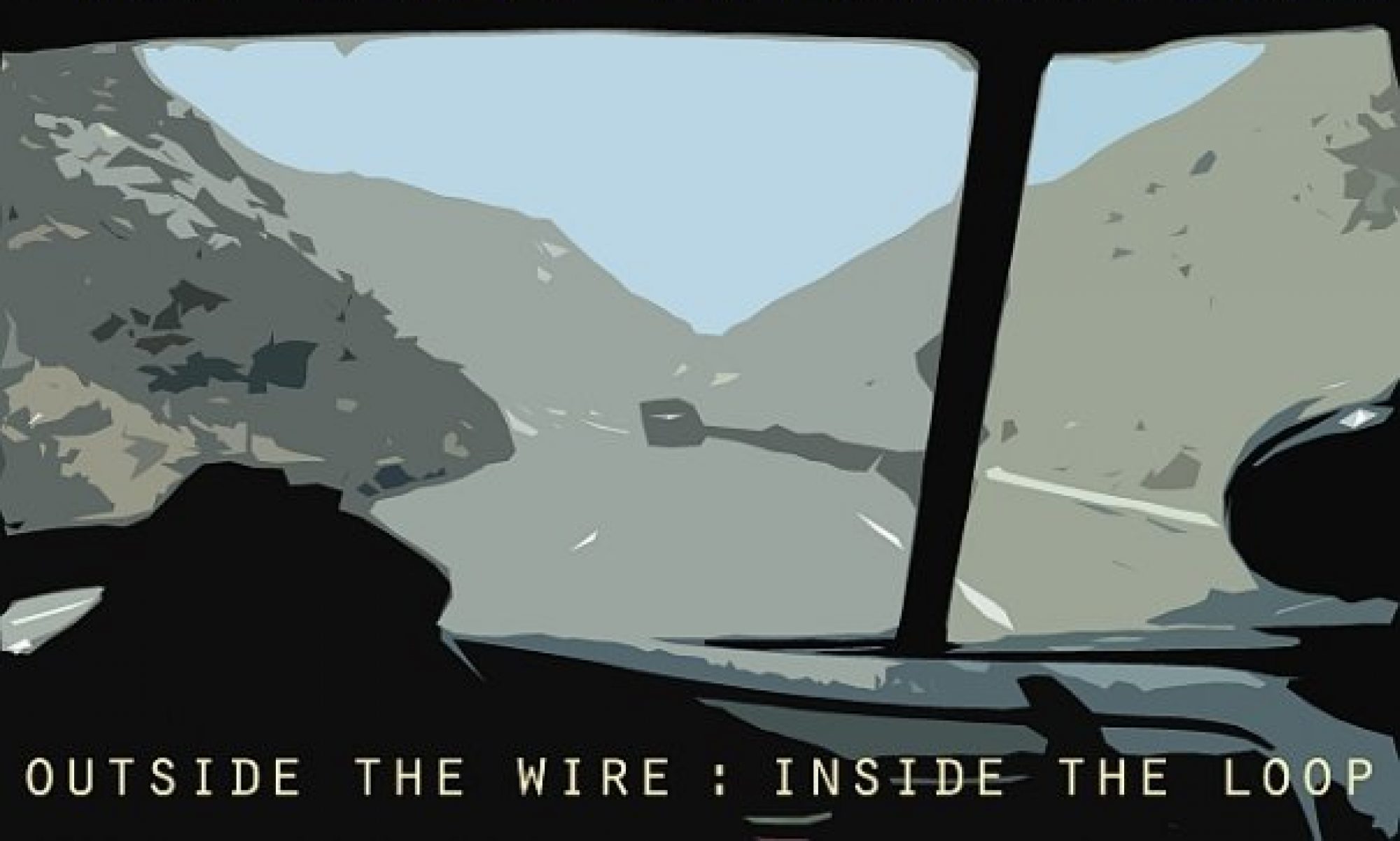
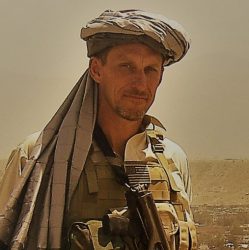

Excellent post Tim. I enjoy studying the tactics and strategies that came out of the African bush wars, and all of that stuff you posted is relevant. From Rhodesia to South Africa, lots of good stuff to check out. I also appreciate the cost effectiveness of these African military machines. They were limited in funds and equipment, and so they had to figure out ways to continue that fight–which means having to use your brain and really innovate to get an edge.
One of my most recent studies was on Operation Modular. A Marine did a study on South Africa’s bush wars, and this operation into Angola during their border wars was amazing. It was a culmination of years of bush fighting and an innovative defense industry feeding that machine, all poured into this operation and others like it. Pure fighting columns!!
The enemy they were fighting was backed by the Soviets, North Korea, Cuba, and every other communist nation at the time, all armed with every type of soviet hardware and munitions you can imagine. This communist backed force even had a better air force. SADF was outnumbered with limited air assets, and they still stomped the FAPLA. Check it out.
http://www.sa-soldier.com/data/06_sadflinks/UsedPDFs/SADF_OPs_analysis.pdf
Post Viet Nam: Marry the Peace Corps with the United States Military. A great idea put into practice…no? COIN…
RESULT: No victory in sight, going broke…sooner, rather than later. Here, raise some of “our” flowers right next to those pretty opium plants of yours!
POSSIBLE SOLUTION: Elect different type of President (not another lawyer trained, passive aggressive type–read those Wikileaks for confirmation!) who suggests to the American citizenry the return of a “military draft” while no longer talking how important it is to “allow” gays to serve (which is nothing more than a game to destroy our military by those who hate our military…you remember their parents? “Hell no, we won’t go!”).
Kinda taking an Israeli point of view toward existence.
Watch how fast some of these “grand talkers” back away from war once their kids get in uniform.
And, if it is war that another country seeks with the US, then this time we will give them a war, not some pseudo para-military, quasi community organizing, cop nightstick beating–while talking social justice such as “Can’t we all just get along” Rodney King style: A game run by feminists and metrosexuals like Obama-Mao! There’s enough teat for “everyone”…ride here to paradise in your MRAP!
Oh…wait…here it comes from our pals in Mexico; real war in the streets. Supply–demand energies at work…you don’t say!
Not sure of where reality exists? Visit your local Veterans Hospital this Christmas season and spend some time with those who love this country enough to get what they got–doing what their Country asked of them!
Heroin goes out, weapons come in. Iran uses about 17 tons of heroin per year or 50-100 million wholesale. I don’t think that anywhere near that comes back as weapons. maybe a lot of fertilizer, but why pay more for weapons in Iran when they are cheaper in Afghanistan ?
Because Iranian origin weapons are cheaper in the west, just as Pakistani origin weapons are cheaper in the east.
POINT
OF
SALE,
R
http://cannoneerno4.wordpress.com/2008/02/07/no-boots-on-nimroz-ground/
Is it true that Farsi and Dari are mutually intelligible?
Do they still use Iranian rials in Herat instead of afghanis?
Until 1956 Dari was officially called Farsi in Afghanistan. Many Pashtun speakers still call it Farsi. There are slight differences- mainly in nouns- Dari uses more English words (motor, meeting) and Farsi more French (merci)and the Iranians have made a effort to keep English words- including high tech words- out. If you use a “Iranian” noun most Afghans will know what you mean but tell you that’s the Iranian term. The accents are noticeably different with Afghans sounding less sing songy with a harder sound than Iranians.
Rials are used all along the border.
How much Qods Force is in Nimroz?
“$203,750.00 per trip most of which are less than 3 miles.”
Hey, that’s enough to establish and run a fab lab for about 2-3 years! 40 new fab lab a year… eish. I’m going to need more coffee.
Everyone knows how much this costs. Why would senior USAID, DSS, DOD, and DOS managers put up with it? Primarily because managers want to become vice-presidents and country managers of their security contractors and implementing partners after they qualify for their US GOV pension. Secondly- why bother. They’re in country for a year and by the time they figure this out they’re counting down to DEROS. Thirdly- why break their new pals rice bowl.
I complain about GOA corruption a lot but US Gov corruption is by far larger and more sophisticated.
Interesting post Tim! somewhere I read provinces that receives aid an support are dictated by population,and there support of the local government.If true, then Kabul would receive the lions shear.
what you are describing is a hybrid gendarmerie, almost, Tim. Living among the people but with the dual purpose of nation building and secondarily, limited engagement with the enemy. A difficult job. Being a helping hand and a hedgehog.
A lot of advantages, but significant dangers as well. Perhaps disguised/low profile and running around in 10 year old Toyota Corollas is an answer.Swimming in the ocean of the people, if you will. But at the same time, this is Richard Burton stuff (not the actor). Is there a middle ground? How does one develop a secure IFF under such circumstances?
Not necessarily corruption, J Harlan, but the bureaucratic mindset that wastes money like water.
Why? Why are good doing flag wagging americans risking it all on places described above? Why? Because they are given the order. And because of 911? oops No. Not anymore,
Why is the order given? Oil and gas —
http://www.atimes.com/atimes/South_Asia/LL16Df01.html
its old news and Its called the TAPI pipeline.
TAPI is a US-sponsored enterprise making Pakistan and India stakeholders in a US regional Silk Road project. TAPI is one of various pipelines offered as a step forward for the Indian- pakistan- afghanistan lets get along and deny russia and Iran solution (US version). Other proposed pipelines go through China and/or Iran which would not favor Chevron.
What this means is that the marines will soon be going into Quetta and that is no bull. How else will the pipeline be built?
Maybe it will actually work and stability will follow huge profits.
It just blows that the good, the young fine american must die. Not to mention all the other fine human beings killed. Forget about the cost. The cost of this war seems of little concern anymore.
So much for girls schools, massive cups of tea and fablab.
Empires come and go; now built upon pipelines (sources for energy) and why not? How else do we feed this self-importance.
Hi Tim,
Although I often read your postings, it was Matt who pointed me to your latest post. I do not know Afghanistan but your observations are very much in line with what friends tell me and I enjoy the absolute honesty that comes through in your reporting.
Thanks for continuing to educate us. Keep up the good work and stay safe.
Rgds,
Eeben
1. Amazing who turns up on your site.
2. Am more impressed by COL Barlow, than I would be by GEN P.
3. Am sure the ISAF J2 types monitor your blog, though.
4. Have good, safe hols.
5. Reiterate COL Barlow’s last sentence -without his cachet.
V/R JWest